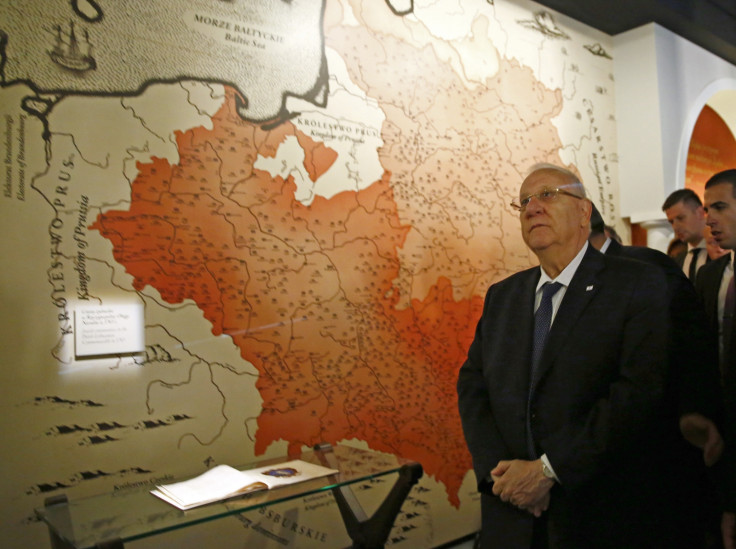Why Israel's Jewish-Nation Bill is Controversial

The fragile governing coalition of Israeli PM Benjamin Netanyahu is in danger of falling apart over one of the most divisive and complex laws in the young country's history.
The controversial Jewish state bill, which defines Israel as the "nation-state of the Jewish people", has been strongly sponsored by Netanyahu, who said it is key to protecting Israel's identity against its enemies.
But centrists in his government argue that legislation is not needed as Jewishness of the state is already enshrined in the 1948 Declaration of Independence.
The bill, which attempts at resolving the binomial drift between Israel's Jewish and democratic nature, has been approved by Netanyahu's cabinet on Sunday but multiple drafts exist of the legislation.
An early version says that the State of Israel is a democratic state "based on the principles of liberty, justice and peace expressed by the prophets of Israel, and affirms the personal rights of all its citizens according to any law".
It is a de facto amendment of the Declaration of Independence, which states that Israel "will affirm complete social and political equality for all its citizens, regardless of religion, race and gender".
In affirming State of Israel's identity as the nation-state of the Jewish people, the proposed legislation absolves the state from its responsibility to protect collective rights of communities that are not Jewish, like the Israeli Arabs.
It basically says that only Jewish people have national rights such as the right to self-determination, to a flag, an anthem and free immigration. Jewish law is the inspiration for Israel's legal system, embedding the automatic citizenship granted by the Law of Return.
Judaism and democracy
An earlier version proposed by Likud hardliner Ze'ev Elkin went further, defining Hebrew as Israel's only national language - removing Arabic - and affirming the importance of settlements, which are illegal under international law.
Critics accuse Netanyahu of pandering to the hardcore nationalists in his coalition and argue that the legislation will make the Israeli state less democratic and more racist.
Among the most prominent opposers of the bill are two senior ministers, Tzipi Livni and Yair Lapid.
"I will not give a hand to this bill," Livni, justice minister, said in an interview with Channel 2. "I am prepared to be fired over this issue."
President Reuven Rivlin also came out against the draft, calling for a national referendum on the bill.
"The formulators of the (Israeli) Declaration of Independence, with much wisdom, insisted the Arab communities in Israel, as well as other groups, should not feel as the Jews had felt in exile," President Reuven Rivlin said.

Divisive bill
Israeli Arabs make up to 20% of its population of 8.2 million and have long complained of being disenfranchised and treated as second-class citizens.
Under the bill, for example, the state could not be responsible anymore for putting up bilingual sign in mixed cities or provide adequate funding for Muslim religious institutions.
"From now, according to the bill, only Jews would enjoy collective rights, and Arab would make do with personal rights alone," Aeyal Gross wrote on Haaretz daily.
"With this law, the state will be less democratic and more racist," said Arab legislator Jamal Zahalka.
The key distinction that emerges is between national rights - which would be exclusive to the Jewish people - and personal rights, which would be upheld for all.
The contentious bill has been criticised by EU officials, who invited the government to "fully recognise and respect Israel's longstanding commitment to basic democratic principles".
These comments were echoed by a New York Times editorial, which said it was "heartbreaking to see the Israeli cabinet approve a contentious bill that would officially define Israel as the nation-state of the Jewish people, reserving 'national rights' only for Jews."
But Israeli economy minister Naftali Bennett rebuked the comments, saying that the US should not meddle in Israel's internal affairs.
"Israel is a democratic state, as it was and always will be," Netanyahu said. "I don't know a country that is more democratic, or a more vibrant democracy than Israel in the world, certainly not in our region.
"What is being challenged today is Israel's existence as the nation-state of Jewish people, and therefore we will anchor in the law this national right of the Jewish people alongside a guarantee of individual rights for all its citizens."
© Copyright IBTimes 2025. All rights reserved.






















